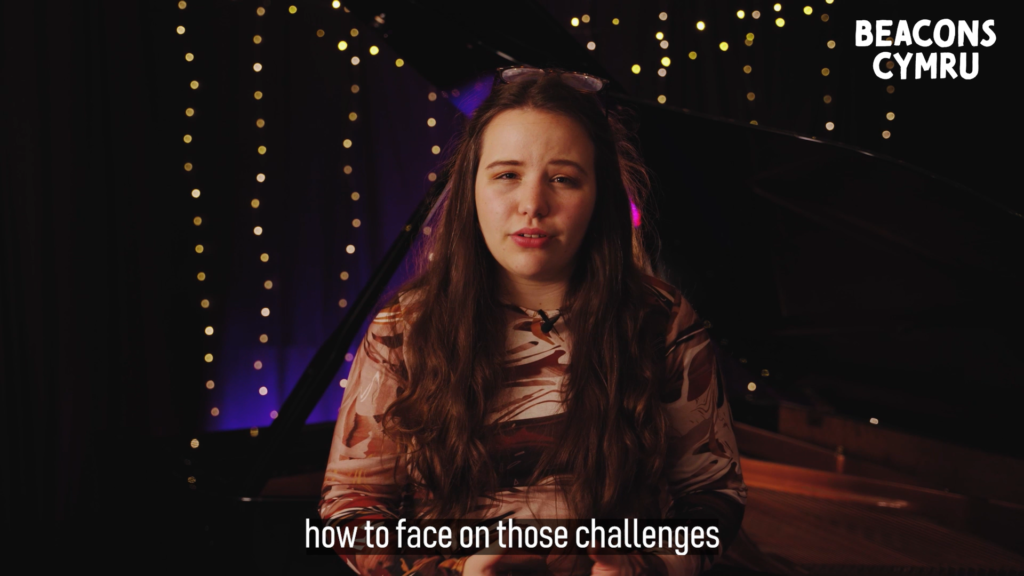Burnout is a state of mental and physical exhaustion. Continual exposure to stressful situations can lead to burnout.
Burnout, however, isn’t always easy to spot. With that in mind, we’ve put together a guide to help you identify the symptoms, as well as ways to prevent it.

We created a video commissioned by Beacons Cymru to explain Burn Out which you can watch here!
To start, let’s talk about the symptoms.
Those who are burnt-out may feel…
- Physically and emotionally depleted. Physical symptoms may include headaches, stomach aches, and appetite or sleeping changes.
- They may also feel overwhelmed and irritable. As a result, they may stop socializing with friends and family.
- People with burnout may fantasise about running away or going on a solo-vacation. In extreme cases, they may turn to drugs, alcohol, or food as a way to numb their feelings and detach from their stress. Which is an unhealthy coping mechanism.
Burnout can also lower your immune system and so you’ll be more susceptible to colds, the flu, and insomnia.
TIP 1
Exercise
Not only is exercise good for our physical health, but it can also give us an emotional boost. If you are feeling stretched for time mini-workouts and short walks are convenient ways to make exercise a daily habit. Check out below our Associate Artist Roisin in the video below!
TIP 2
Think, ‘Why?’
You first need to identify why you’ve experienced burnout. In some situations, this will be obvious. Other times, it may be more difficult.
Take time to think about any negative feelings that you have about your work. Once you’ve identified a cause of your burnout, write down at least one way you can manage or eliminate that source of stress or unhappiness.
Another useful method for identifying underlying causes of burnout is to keep a stress diary. Each day, write down what causes you stress and record why the event stressed you.
TIP 3
Go on holiday
One good way to start your recovery is to take a real vacation. Time away from work gives you the distance you need to relax and de-stress.
You may be surprised how you feel when you prioritise your health over work.
While the stress and problems that you’re experiencing at work may still be waiting for you when you get back, taking time off is essential for getting the rest you need and coming up with long-term solutions to burnout.
If you can’t travel far or want a shorter trip,
Why not try a local adventure!
Check out this video by content creator ‘Josh The Intern’ on some amazing South Wales locations you could visit today!
There’s no excuse to not do something fun this weekend!
TIP 4
Say “No”, Politely
Try not to take on any new responsibilities or commitments while you’re recovering from burnout and just think…..
Say no
Know your limits
Ask for help
This might be challenging, especially with colleagues who need your help but it is important to Know your limits. Start being more honest with yourself about where you’re working over the edge of your capacity. It’s much better to do a smaller amount of work to a better standard of quality. Don’t forget to ask for help…
TIP 5
Time To Unwind
Throughout your work day, take time to unwind
While you are working, take frequent breaks throughout the day and slow down a little bit when you feel the need. Taking breaks throughout the day can increase your mental well-being, as well as your productivity. If you face a mental or creative blockage, taking a small walk can reignite your mind.
Don’t forget to have fun or social events outside of work too.
Struggling what to do for some down time? Why not give something new a go!
We have a range of playlists on our Spotify to check out!
We also have some fun craft tutorials on our YouTube!
Why not try songwriting? Watch these videos to discover some tips and tricks and how it’s helped others!
Summary
Whether you are burnt out for the first time or have recurring bouts, it’s important to remember you can access help.
A Life Coach can help you understand your limits, and find suitable work/life balance to fit your wants and needs.
Talk to a Councillor if you want to go deeper and find out why you keep overworking yourself or why you ‘can’t say no’.
Here’s some useful websites if you’d like to explore further:
https://mentalhealth-uk.org/burnout/
https://www.nhs.uk/every-mind-matters/mental-health-issues/stress/
https://people.nhs.uk/executivesuite/support-in-difficult-times/stress-and-burnout/
Thank you to Beacons Cymru for commissioning this video series.
Beacons Cymru is a charity supporting young musicians in Wales.
If you would like to commission or support the creation of wellbeing resources please contact:


